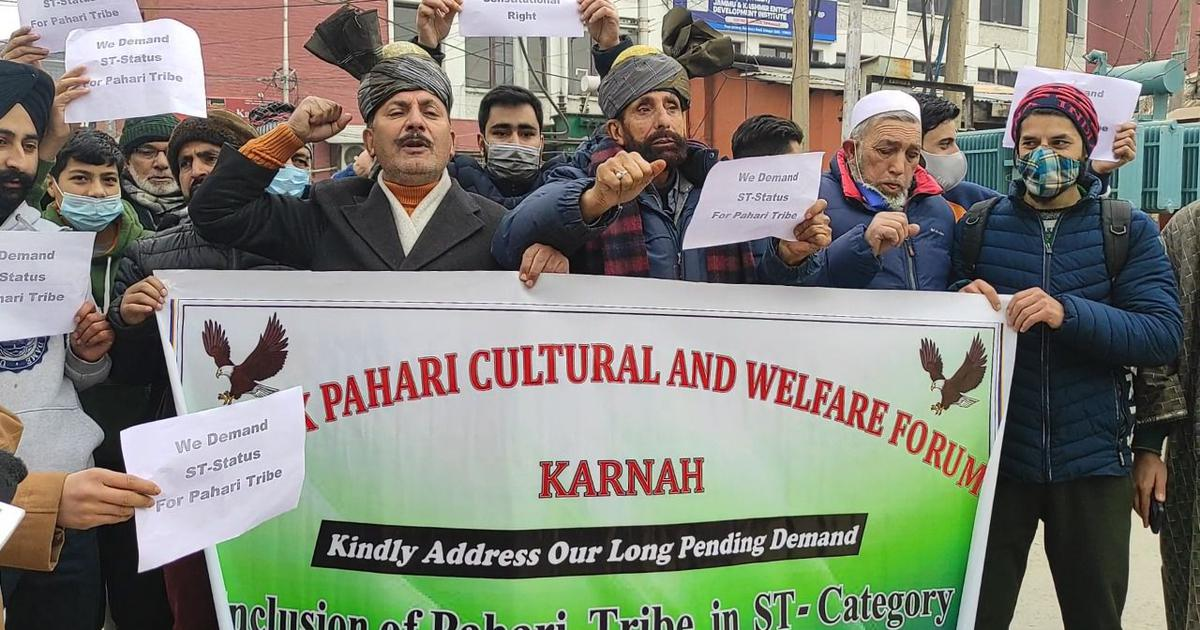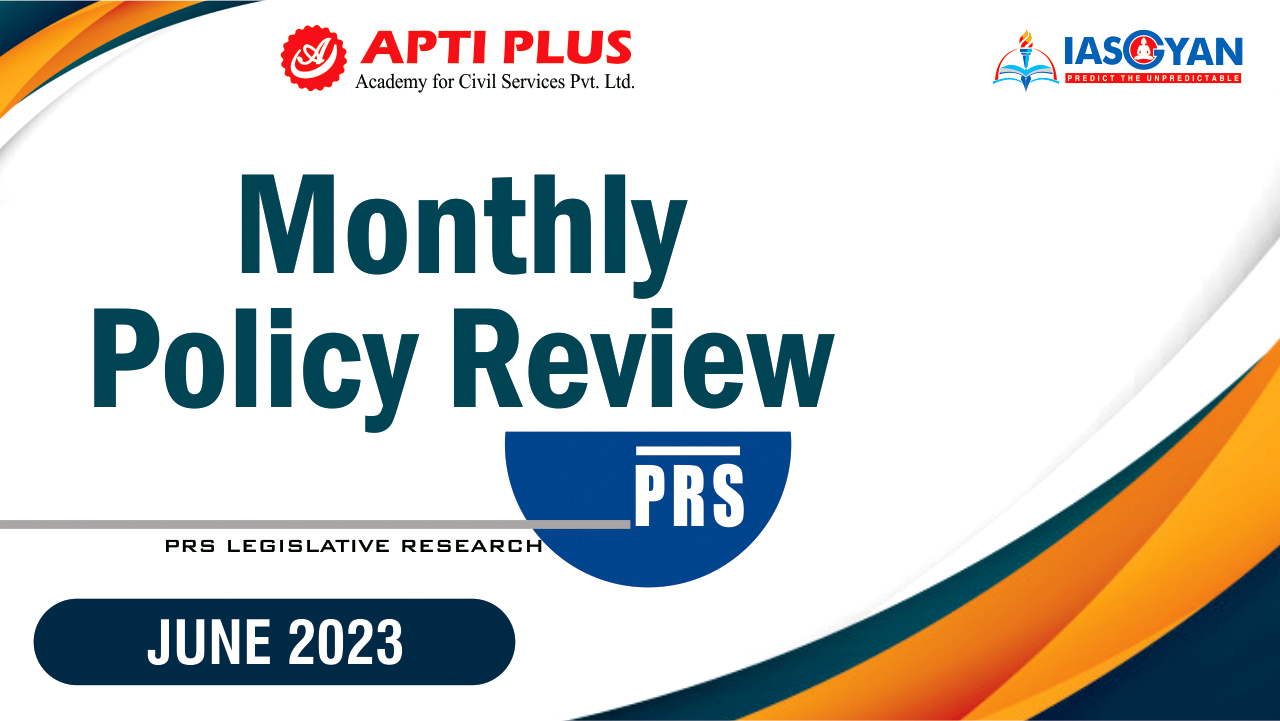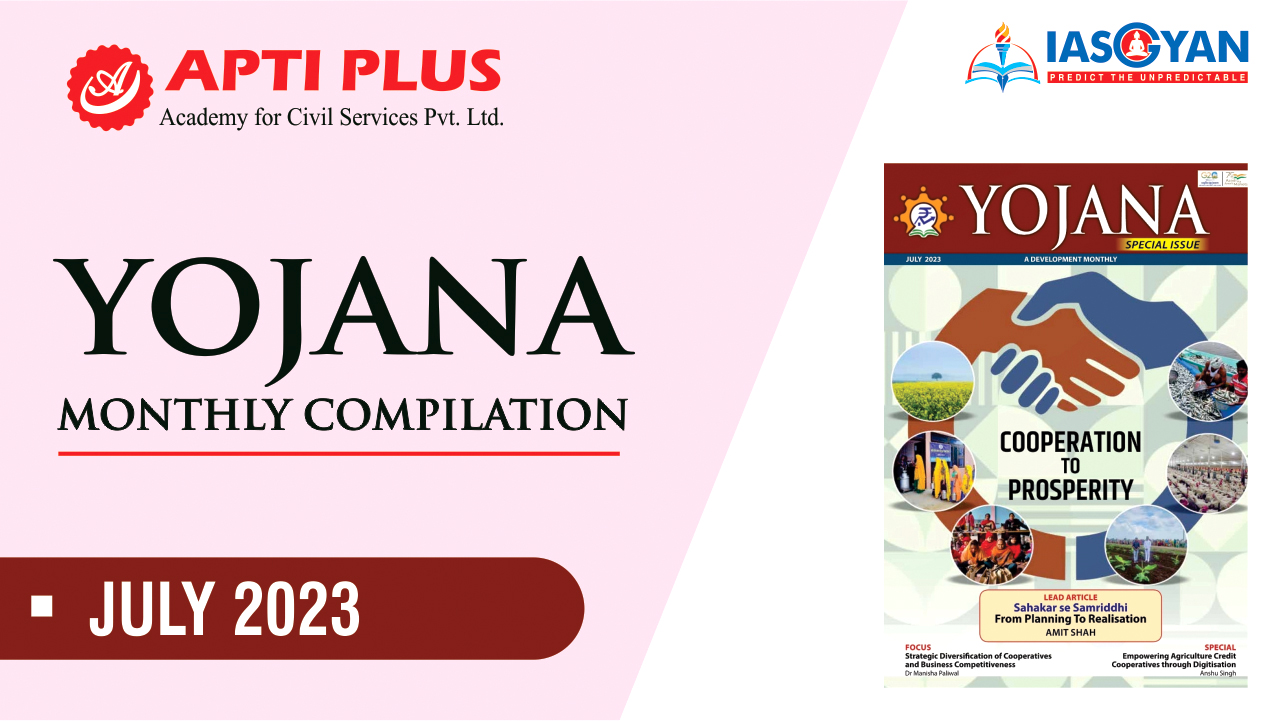Description

Copyright infringement not intended
Context: The Constitution (Jammu and Kashmir) Scheduled Tribes Order (Amendment) Bill, 2023 has been proposed by the government to add four communities to the list of Scheduled Tribes (STs) in Jammu and Kashmir. The Bill aims to provide them with special rights and benefits under the Constitution.
Details
- The Bill introduced by the government aims to add four more communities to the list of Scheduled Tribes (STs) in Jammu and Kashmir. These are: “Gadda Brahmin”, “Koli”, “Paddari Tribe”, and “Pahari Ethnic Group”. These communities are currently not recognised as STs in J&K, unlike the Gujjars, Bakerwals, Gaddis, and Sippis, who have been enjoying the benefits of reservation in jobs, education, and political representation since 1991.
- The Gujjars and Bakerwals are the largest and most influential ST group in J&K, with a population of around 18 lahks. They mostly reside in the mountainous regions of the Union Territory and follow a nomadic lifestyle.
- The move to expand the ST list has met with opposition from the Gujjar-Bakerwal community, who fear that their share of the quota benefits will be reduced by the inclusion of the new communities. They have also questioned the eligibility and identity of some of the proposed STs, especially the Paharis and Paddaris. They claim that the Paharis are not a distinct ethnic group but a linguistic category and that the Paddaris are a nomadic tribe that has migrated from other states.
- The government has justified the Bill by saying that it is based on the recommendations of a committee set up in 2014 to examine the demands for ST status by various communities in J&K. The Bill also states that the amendment will entail additional expenditure for providing benefits to the newly recognised STs.

Pahari Ethnic Group
- Hindus, Muslims, and Sikhs make up the Pahari ethnic group of Jammu and Kashmir, along with individuals of Kashmiri descent who over time lived in the districts of Rajouri and Poonch. The Paharis include persons who were evicted from Pakistan-Occupied Kashmir as well as upper-caste Hindus.
- The request for Paharis to be recognized as a Scheduled Tribe (ST) dates back to 1989 when the Jammu and Kashmir government suggested including them on the ST list alongside the Gujjars, Bakerwals, Gaddis, and Sippis. The recommendation was denied by the Registrar General of India, who claimed that there was no caste or tribe called "Pahari" in their records.
- The state government set up an Advisory Board for the Development of Pahari Speaking People in response to a request from Paharis living in the border regions of Rajouri and Poonch districts who claimed they shared a social and educational backwardness with the Gujjar-Bakerwal communities in the area.
- The central government repeatedly rejected and clarified the problem despite ongoing calls for ST status.
- Paharis were awarded 4% reservation in jobs and educational institutions in 2019. In the same year, the Justice (retd) G D Sharma Commission was established to identify socially, educationally, and economically disadvantaged people. The commission's findings recommended that Gadda Brahmins, Kolis, the Paddari Tribe, and the Pahari Ethnic Group be granted ST classification. The report was delivered to the Tribal Affairs Ministry, and it was authorised by the Registrar General in 2022.
Paddari Tribe
- The Paddari Tribe is a community of people who inhabit the rugged and isolated Paddar region in the mountainous Kishtwar district of Jammu and Kashmir. The region has two administrative subdivisions and shares borders with Zanskar (Ladakh) in the north and the east, Pangi in Himachal Pradesh in the south, and the rest of J&K in the west.
- According to the 2011 census, there were 21,548 Paddaris, with a majority of 83.6% Hindus, followed by 9.5% Buddhists, and 6.8% Muslims.
- The Paddaris have their language, which is also called Paddari and is spoken by all the residents of the region, regardless of their origin or religion.
- The Tribe is one of the groups that has been demanding Scheduled Tribe status from the government but has faced opposition from other communities such as the Paharis and the Gujjar-Bakerwals. The opponents claim that the Paddaris are not a distinct ethnic group, but a collection of individuals from different castes and faiths who have adopted a common language due to geographical proximity.
Must-Read Articles:
PAHARI ETHNIC GROUP: https://www.iasgyan.in/daily-current-affairs/pahari-ethnic-group
|
PRACTICE QUESTION
Q. What factors have prompted the need for a comprehensive review of the Scheduled Tribes (ST) list to ensure that the benefits of reservation are extended to all deserving communities? Considering this review, what potential impacts, challenges, and strategies should be considered to achieve equitable distribution of reservation benefits and ensure social inclusivity for marginalized groups going forward?
|

https://indianexpress.com/article/explained/who-are-the-paharis-and-paddaris-proposed-for-st-status-in-jk-8870220/










